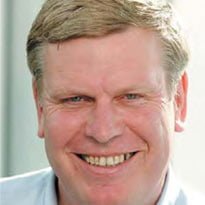Microsoft hits back at NHS CIO
- 14 April 2011

Microsoft has said NHS Chief Information Officer, Christine Connelly, was wrong to say ending the £500m Enterprise Wide Agreement with the NHS did not leave it facing a shortfall in licences.
The director responsible for Microsoft’s NHS deal says the cancellation has left the health service having to pay more, because even after upward revisions it was left short of 100,000 licenses being used.
John Coulthard, Microsoft’s senior director for health and life sciences, said the NHS had also lost out because it was no longer using the most efficient licensing model.
As reported by EHI last week, Connelly told the HC2011 conference that she got “angry” when NHS chief executives and chief information officers complained to her that cancelling the Microsoft deal had left trusts having to pick up the bill for a shortfall of licenses. She robustly denied there had been a shortfall.
However, Coulthard told EHI that last July’s termination of the £500m agreement left about 8% of the seats in use in the NHS uncovered.
He said details of the 2004 enterprise agreement had been covered by a confidentiality agreement, but that on termination the DH had failed four times to accurately count the number of licenses the NHS used.
The actual number of seats was far higher than the 610,000 specified by the original contract, he said. An eventual settlement reached before Christmas left the NHS about 100,000 licenses short.
“The original 2004 deal covered 610,000 seats delivered over a nine year period, where the NHS didn’t have to declare the number used until the end of the contract,” said Coultard.
“When they terminated the deal, which was unfortunate, but something we understood was likely under the new government, we had to agree how many licenses were in use.”
He says this took four attempts by the DH. “First they said 660,000, and we said ‘no’, then 890,000, we said ‘no’ again, then 1.15m and finally 1.05m. They took four goes at getting it right and paid us for the third go.”
He said that the DH had created a liability which it had appeared to hope could be ignored. “They thought we’d let them get away with it. But as the responsible manager here at Microsoft, I have a responsibility to ensure my customer is efficiently licensed.”
Coultard added: “I think they finally understood that and settled with us just before Christmas at 1.05m seats. When they started to hand out allocations to NHS trusts they found that our 1.15m number was correct and that they were about 8-9% short.” It is this gap he said that trusts have been left to pick up.
“I’m saying that Christine Connelly shouldn’t direct her anger at the NHS, at NHS staff and NHS chief executives and chief information officers; it has nothing to do with them.
“If she wants to be angry, she should look at how her own organisation has handled this. My concern is that the CIO of the NHS doesn’t understand the situation and the fact that trusts are frustrated by an 8% shortfall.”
He added that because the licenses handed over to trusts by the DH represent a capital asset, it has left them facing a higher capital charge.
“We’re advising trusts not to take capital assets but to rent them instead.” Coultard said this approach was backed by the National Audit Office and that a significant numbers of trusts were going down the leasing route.
The Microsoft director also bridled at Connelly’s rebuke that a Window’s laptop taking 20 minutes to boot up was too long for a community nurse sat in her car.
“I don’t suspect that she’s ever sat in a car with a community nurse; I have. And as for 20 minutes to start a Window’s laptop, that’s just bullshit. Even if it were true we can probably help save them a day a week.”
He went on to draw unfavourable comparisons with NHS Connecting for Health’s track record on deploying systems, to that of deployment of new Microsoft software within the NHS.
“Christine said that the reason she hadn’t renewed the enterprise deal is because ‘you haven’t deployed it.’ To some extent that’s true. We had about 40% deployed, but that’s somewhat better than their record on patient administration system deployments. She clearly doesn’t apply the same standards to her organisation.”
He said that for Microsoft the cancellation of the EwA “has been a good thing as the NHS as whole has spent more money with us and we have been able to engage with individual trusts to work more directly with them.”




